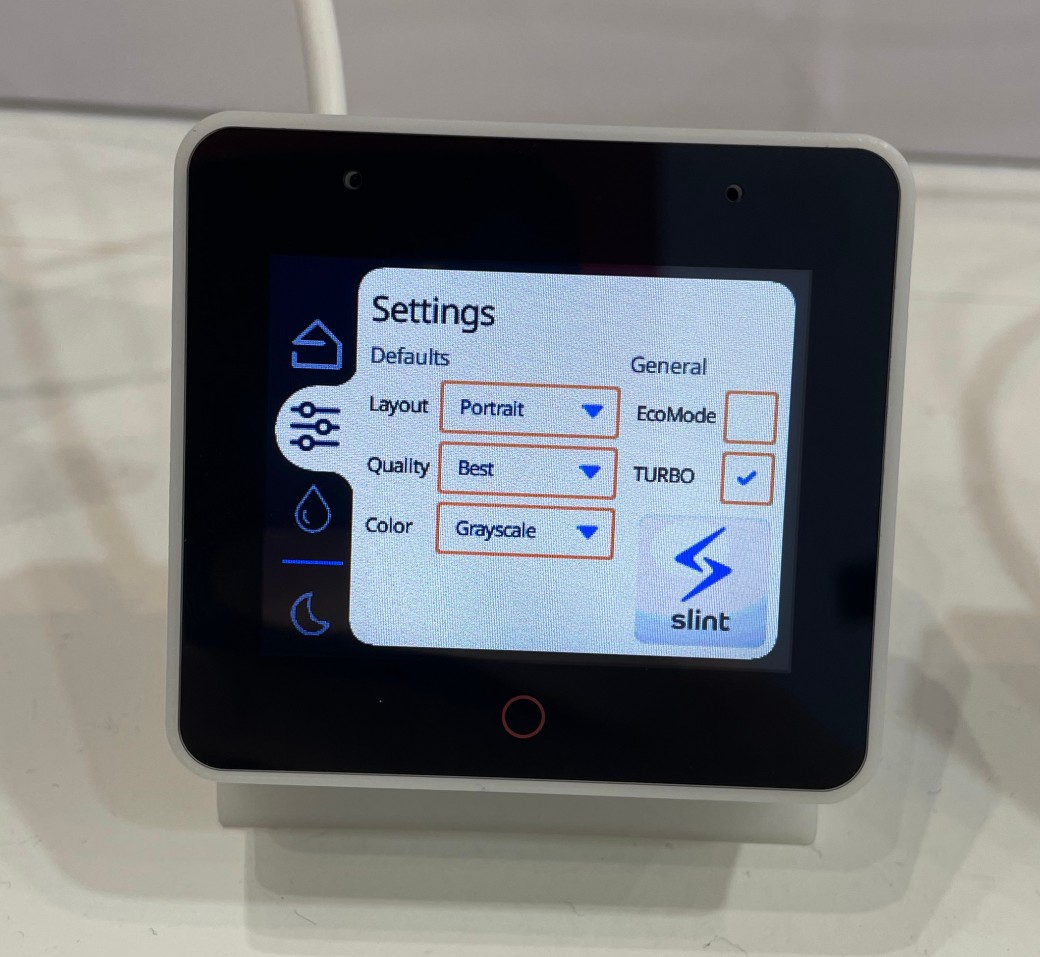uploaded 1 week ago
Slint — declarative GUI toolkit
readme
<!-- Copyright © SixtyFPS GmbH <info@slint.dev> ; SPDX-License-Identifier: GPL-3.0-only OR LicenseRef-Slint-Royalty-free-2.0 OR LicenseRef-Slint-Software-3.0 --> # Slint [](https://components.espressif.com/components/slint/slint) Slint is a declarative GUI toolkit to build native user interfaces for desktop and embedded applications written in Rust, C++, or JavaScript. This component provides the C++ version of [Slint](https://slint.dev/) for the [Espressif IoT Development Framework](https://docs.espressif.com/projects/esp-idf/en/latest/esp32/index.html). It has been tested on ESP32-S3 devices.  ## Documentation Check out our [Getting Started Guide for C++ on ESP-IDF](https://slint.dev/docs/cpp/mcu/esp_idf.html). ## Feedback If you have feedback or questions, feel free to reach out to the Slint community: - [Chat with us](https://chat.slint.dev/) on Mattermost. - [Ask questions](https://github.com/slint-ui/slint/discussions) on GitHub - Contact us on [Twitter](https://twitter.com/slint_ui) or [Mastodon](https://fosstodon.org/@slint) - [Report a bug](https://github.com/slint-ui/slint/issues) on Github ## License You can use Slint under ***any*** of the following licenses, at your choice: 1. [Royalty-free license](https://github.com/slint-ui/slint/blob/master/LICENSES/LicenseRef-Slint-Royalty-free-2.0.md), 2. [GNU GPLv3](https://github.com/slint-ui/slint/blob/master/LICENSES/GPL-3.0-only.txt), 3. [Paid license](https://github.com/slint-ui/slint/blob/master/LICENSES/LicenseRef-Slint-Software-3.0.md). See also the [Licensing FAQ](https://github.com/slint-ui/slint/blob/master/FAQ.md#licensing). ## Links [Website](https://slint.dev) · [GitHub](https://github.com/slint-ui/slint) · [Docs](https://slint.dev/docs/cpp)
Links
- Homepage
-
Documentation -
Repository ce50ea806a9a1d512d30acab6f99c8a1d511505f
-
Discussion
Supports all targets
To add this component to your project, run:
download archive
idf.py add-dependency "slint/slint^1.14.1"
Stats
-
Archive size Archive size ~ 27.78 KB -
Downloaded in total Downloaded in total 473 times -
Downloaded this version This version: 0 times